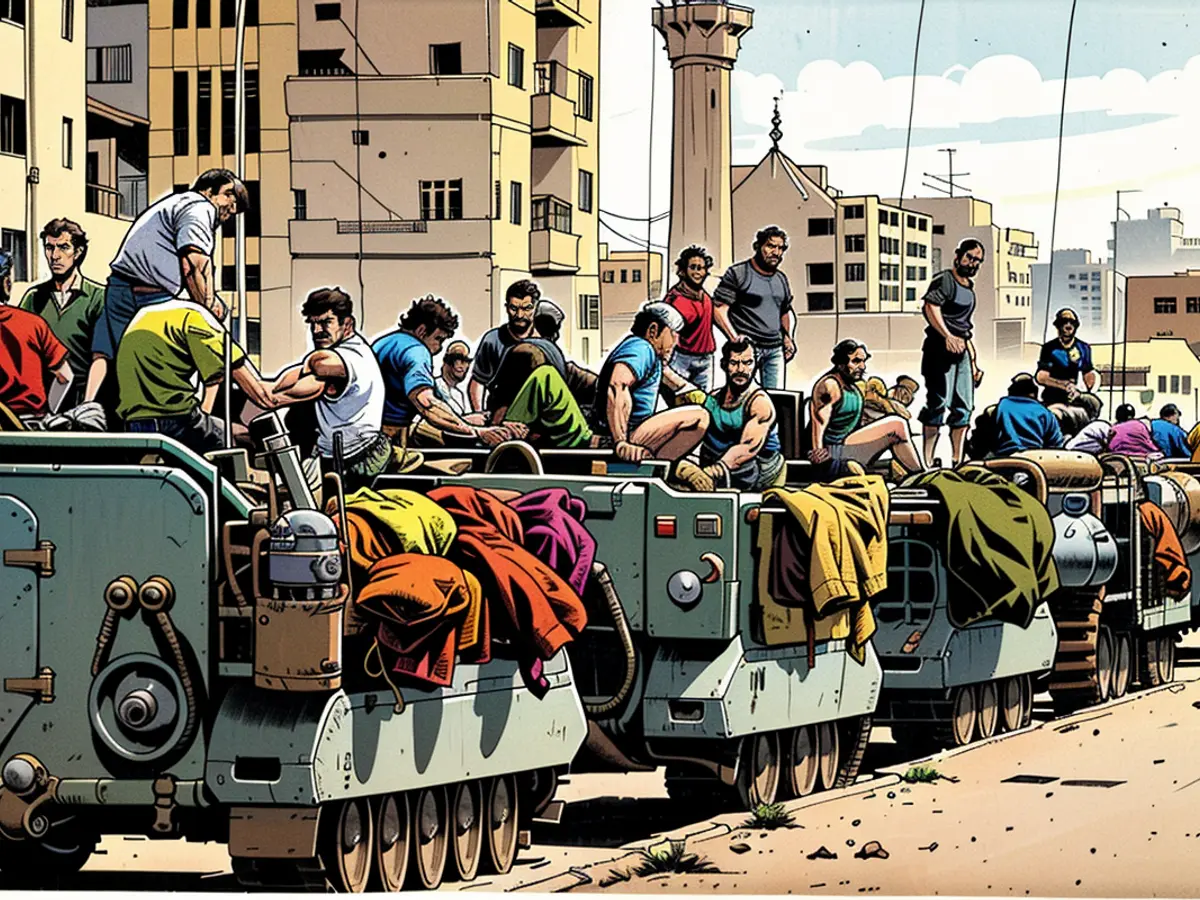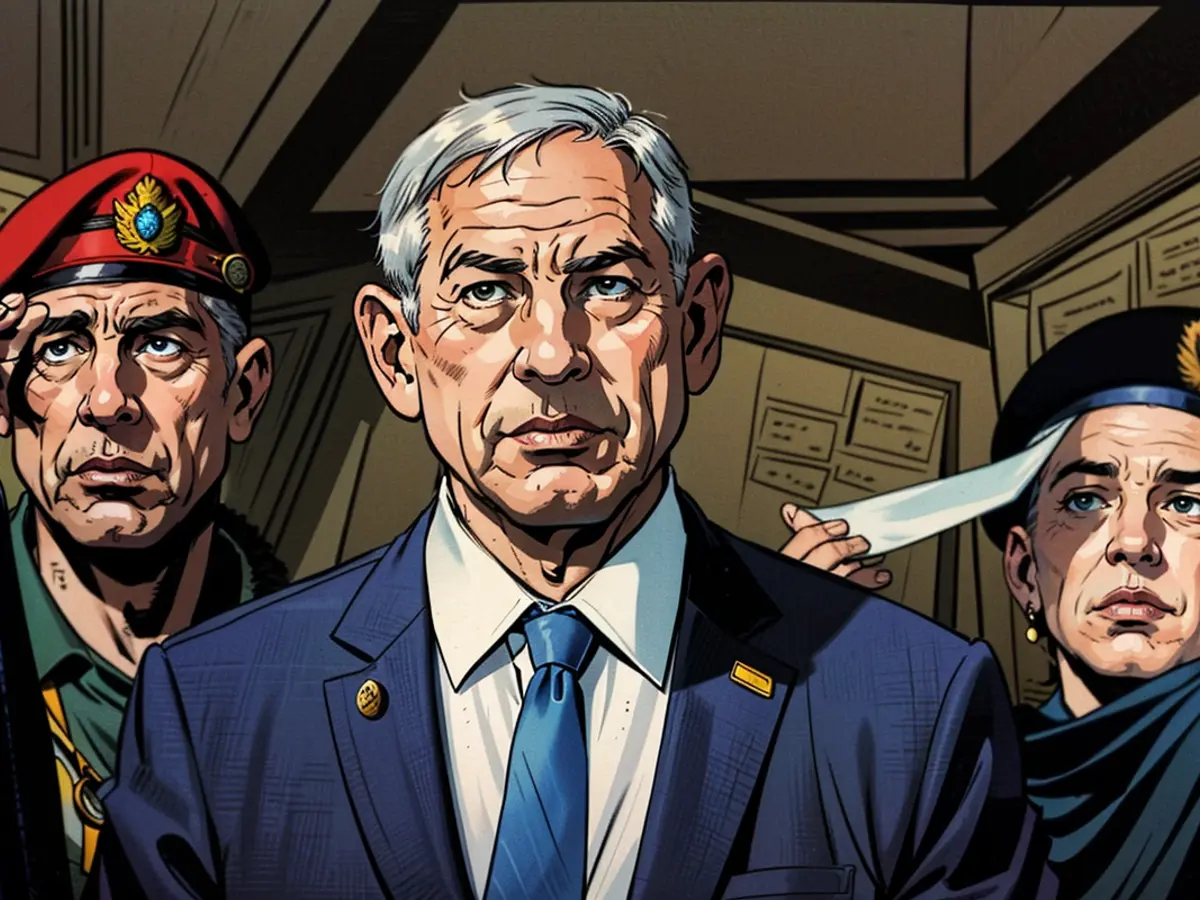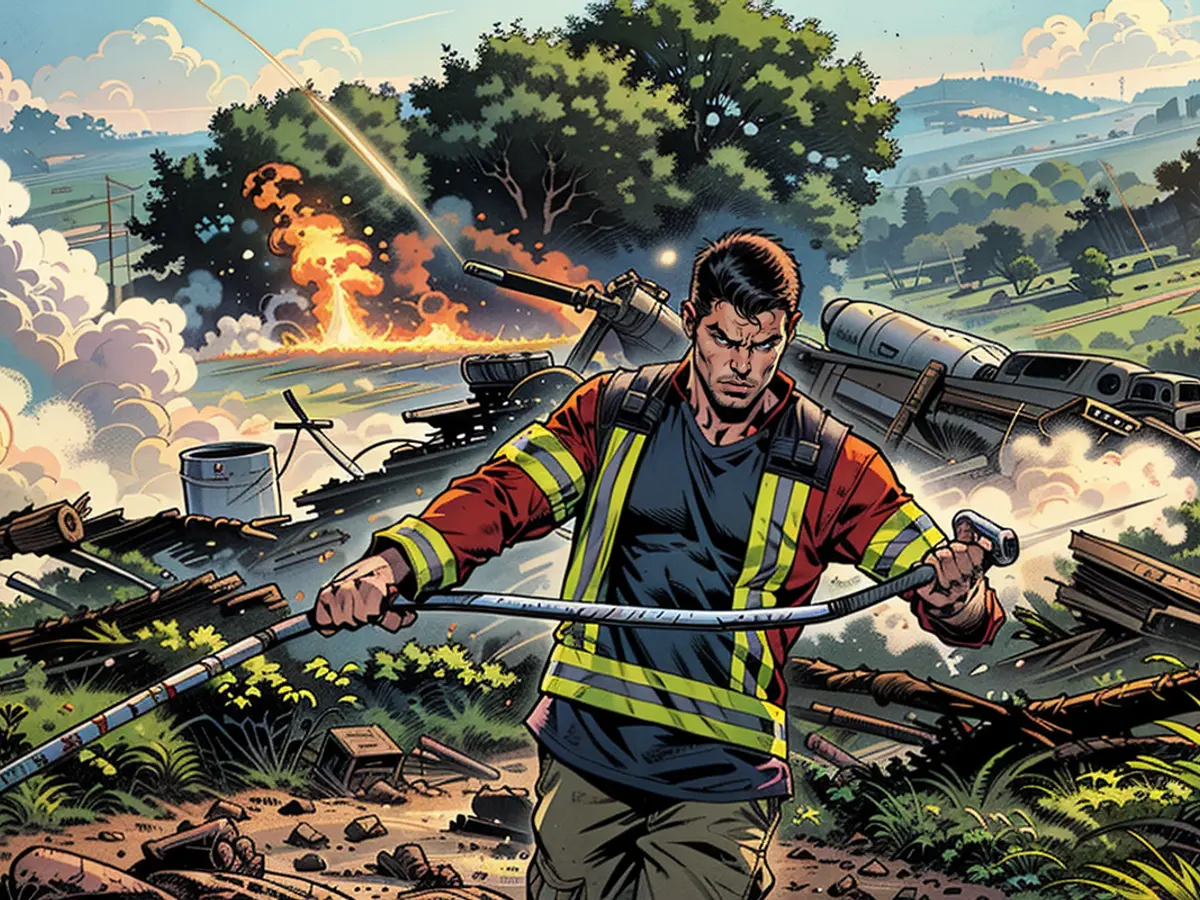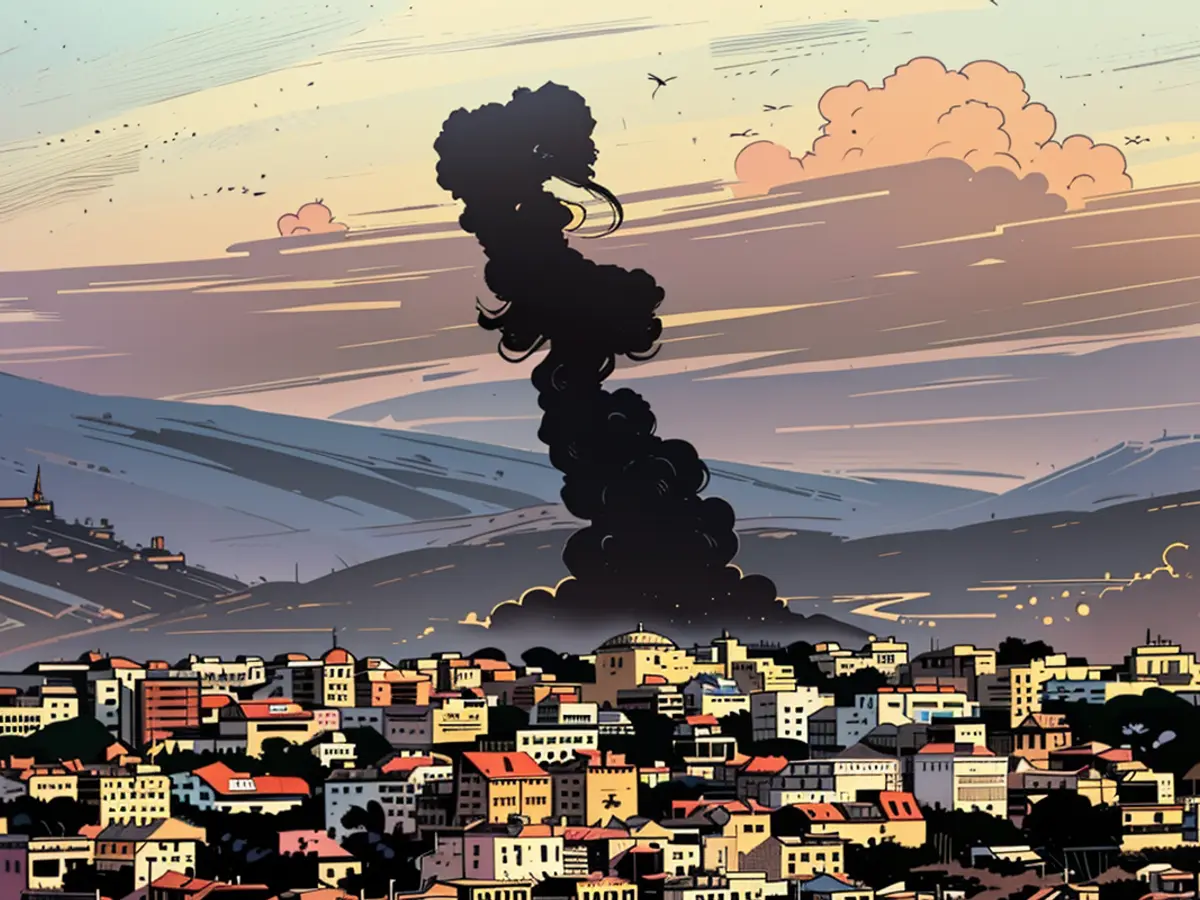The escalating tensions between Israel and Hezbollah may soon reach a boiling point.
Both Israel and Hezbollah have been tit-for-tat exchanging blows for over eight months. The situation seems to be rapidly escalating, with a full-blown war becoming a distressingly real possibility – even if both sides are trying their best to avoid one.
Here's what we understand so far:
What's the source of contention between Israel and Hezbollah?
Since the '80s, Lebanon and Israel have been in a perpetual state of war. Israel invaded Lebanon in 1982, marching all the way to the capital, Beirut, after facing attacks from Palestinian militants within the country. It stayed put for 22 long years until its expulsion by Hezbollah, a Lebanese movement backed by Iran.
Hezbollah is a "resistance" group with a powerful paramilitary force. Beirut views Israel as an enemy state, and much of the Western world classifies them as a terrorist organization.
Post 1982, the two sources have engaged in occasional skirmishes, but tensions skyrocketed in 2006 when Israel invaded Lebanon again, this time to retaliate following Hezbollah's kidnapping of two Israeli soldiers. Nearly 1,000 Lebanese were killed in that conflict, predominantly civilians, along with 49 civilian casualties and 121 soldiers from Israel. In 2008, Hezbollah returned the kidnapped soldiers in exchange for the release of Lebanese and Palestinian inmates in Israeli custody, together with the bodies of militants Israel had been keeping.
The latest bout of fighting between Israel and Hezbollah escalated after the Hamas orchestrated an attack on Israel on 7th October, claiming the lives of 1,200 people and kidnapping 250, as per Israeli authorities. Israel entered into confrontation with Hamas in Gaza which resulted in the demolition of much of the Palestinian territory and more than 37,000 Palestinian casualties. Hezbollah has been locked in a struggle with Israel in retaliation for supporting the Palestinians in Gaza.
The military might of Hezbollah has grown significantly since 2006 when the group mostly relied on Soviet-era Katyusha rockets. Today, according to Hezbollah's leader Hassan Nasrallah, the group has a formidable army of over 100,000 fighters and reserves. They are said to own more than 150,000 rockets, strong enough to overwhelm Israel's defenses under the onslaught of a full-fledged war.
What's fueling the tensions?
The Israel-Hezbollah war has been gradually intensifying ever since 7th October. According to Heiko Wimmen, an expert with the International Crisis Group, it's a "slow-motion escalation".
Both sides are indeed approaching the brink of war. The intensity of border clashes has grown significantly, and casualties on both sides have increased. Wimmen particularly noticed a sharp rise in the number and scale of casualties and the types of weapons used by Hezbollah. For example, a Hezbollah strike killed an Israeli reservist in a northern Israeli village a week ago, raising the count of Israeli losses to 19.
Israel, on the other hand, killed Hezbollah's top-ranking commander, Talib Sami Abdulla, in a Southern Lebanon strike this week. In response, Hezbollah launched over 200 rockets at Israel on Wednesday and a more minor barrage on Thursday.

The border clashes have also expanded in scope. In the initial stages of the war, clashes were limited to a 4-kilometer (2.5-mile) radius of the border on either side, but now Hezbollah has targeted sites over 35 kilometers into Israel, while Israel has aimed at targets inside Lebanon over 120 km (74 miles) north.
In the first week of June, cross-border attacks from Lebanon sparked large fires in Israel's northern region, which Israel blamed on rocket fire originating from southern Lebanon. Hezbollah claimed it had launched a "swarm of drones" at Israeli military sites.
Amal Saad, an expert on Hezbollah from Cardiff University, said the group's escalation this time is a stark departure from earlier skirmishes since 2006.
"This stage transcends merely responding to Israeli attacks and restoring deterrence; it involves conveying new messages and strategies," Saad wrote in a recent article.
The clash has become "highly noticeable" and "hard to overlook," Wimmen, of the International Crisis Group, explained. Israeli officials feel the need to take preventive action or at least seem to, facing mounting pressure from right-wing politicians in Prime Minister Benjamin Netanyahu's administration.
"There is a push in government and the Israeli army to act in the north," explained Ronni Shaked, a scholar at the Truman Institute at the Hebrew University of Jerusalem. "No one can live with this situation."
New weapons on the scene
The ongoing conflict has introduced some novel weapons to the fray.
In a concerning development on 8th June, Hezbollah claimed it had launched a salvo of Falaq 2 rockets at a military installation in northern Israel. This was the first time the group utilized the Falaq 2, a more powerful version of the Falaq 1 rocket they'd been deploying in the conflict. An Iranian-made rocket, the Falaq 2 has a longer range and a larger warhead than the Falaq 1.
A rocket made in Iran called the Falaq 2 has a longer reach and a larger explosive payload compared to its predecessor. Soldiers from Israel along the border with Lebanon have employed an uncommon weapon from medieval times: a trebuchet. This machine, featuring a rotating arm and a sling aid for catapulting, was utilized to fire projectiles with flames at Lebanon to burn shrubs, simplifying identification of militants for Israeli soldiers.
On Thursday, Israeli public broadcaster Kan, a CNN affiliate, reported that the IDF confirmed the trebuchet's usage at the northern border, terming it "a local initiative" with no widespread adoption.

What are their stances?
Rhetoric from both countries has heated up, but experts elucidate neither side yearns for a full-fledged skirmish. Israeli Prime Minister Benjamin Netanyahu elucidated in December that Beirut would metamorphose into Gaza if Hezbollah opted for an all-encompassing offensive. However, Finance Minister Bezalel Smotrich put the brakes on a broader war, asserting the IDF doesn't wish to initiate an attack in the north to overwhelm Hezbollah or form a safety zone. Netanyahu affirmed during a visit to Kiryat Shmona near the Lebanese border that Israel is ready for "intense action" in the north.
Hezbollah's second-in-command, Naim Qassem, told Al Jazeera that the group avoided deepening the engagement and doesn't seek a total war. He declared: "If it is imposed on us, we are ready, and we won't retreat." Qassem cited Hezbollah's decision to end its assaults on Israel once the fighting in Gaza ceases.
Is a large-scale battle probable?
Specialists opine that even though neither side might initiate a comprehensive war, their heightened measures could instigate one unintentionally. Wimmen of the International Crisis Group posited that Israel and Hezbollah are averse to starting a war, but the hotter the conflict progresses, the deeper each side penetrates the other's sovereign territory and the more lethal weapons employed, the higher the likelihood of an erratic event.
Netanyahu faces pressure from adversaries and coalition members to implement changes in the north, especially since numerous Israelis have been pushed from their homes. The IDF disclosed that more than 53,000 Israelis have been forced to relocate from the north.
In Lebanon, over 94,000 inhabitants were displaced from areas near the Israeli border since the tussle commenced, according to figures published last week by the Lebanese Ministry of Public Health.
"All Hezbollah strongholds must be annihilated and incinerated. War!" Israeli National Security Minister Itamar Ben Gvir declared in a public announcement. Opposition leader Yair Lapid accused the administration, remarking, "The northern sector is on fire, and Israeli deterrence is scorched."
The US has urged caution, as it fears an incident could result in an uncontrollable escalation. State Department spokesperson Matthew Miller asserted on Wednesday that the United States is "deeply worried" about the prospect of escalation, indicating that the Biden administration is diplomatically engaging "to try and curtail the conflict from spiraling beyond containment."
Shaked, a scholar from the Truman Institute, averred that Hezbollah’s attacks on Israel are not exclusively to support Gaza, but rather closely associated with their closest ally, Iran. He implied a larger skirmish could also involve the Islamic Republic and the United States. In April, Israel and Iran came close to battle after engaging in unparalleled direct strikes on each other's soil.

Read also:
The escalating tensions in the Middle East, primarily between Israel and Hezbollah, have sparked global concern due to the potential for a large-scale conflict.
Despite the ongoing hostilities, Israel and Hezbollah remain deeply embedded in the wider geopolitical dynamics of the Middle East and the world, with major powers such as the United States exerting influence and trying to prevent a full-blown war.







